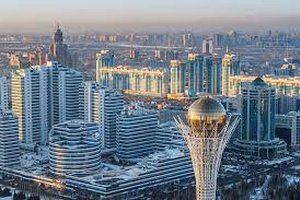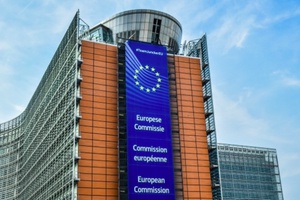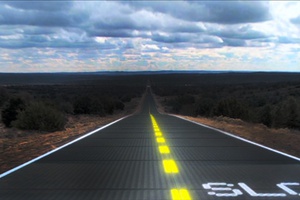-
4 juillet 2023
Kazakhstan, the imperative to cooperate

Landlocked in the heart of Central Asia, Kazakhstan is involved in regional partnerships and, pragmatic, claims to be a facilitator with balanced relations, even if the pressure to take a stand between Russia, China and the European Union is strong. This cocktail is the challenge of so-called middle power (or bridge) countries, developing multi-factor diplomacy, here constrained by geography and made possible by the country’s resources. Moreover, the development and identity of the five Central Asian countries are built around the imperative of cooperation, given the geographical position and the small number of citizens (75 million for the five countries). lire la suite
-
28 décembre 2021
Nuclear power and natural gas: what lies behind EU inconsistencies?

On December 21, the European Commission has just presented the new “state aid for climate, environmental protection and energy” regime, the main objective of which is to facilitate the achievement of the 2030 and 2050 climate objectives by authorising subsidies for all technologies contributing to the energy transition. However, nuclear power is excluded, while natural gas-based electricity production is covered. Why such an inconsistency? lire la suite
-
29 mars 2019
Let’s not oppose climate policies and purchasing power! Lessons from the French climate transition

Rising green taxes on gasoline initially sparked the “Yellow Jackets” movement in November 2018. The winter of discontent that came with the tax riots reminds us of the importance of reconciling protection of purchasing power with that of the climate. lire la suite
-
24 février 2016
Does France really need solar roads?

Contrary to its neighbors and partly due to the low cost of its nuclear electricity, until recently France did not show much interest in solar energy. The country now seems to be catching up. Public policies are implemented, both to encourage households and to foster an industry which has not yet reached maturity. Only thing is, one can hardly make sense of some of these policies. lire la suite
-
4 février 2011
Energy: Nabucco’s comeback

Since its launching in 2002, the Nabucco pipeline project has had several lives. Many times it was given as death, but it finally managed to rise from its own ashes. Even though the Russian-Ukrainian gas crisis in 2006 transformed Nabucco into a top priority European project, in the last few years it advanced a little but backed up a lot, resulting in barely concealed mockery. This pattern is true and depicts Nabucco’s situation before the economic crisis. The latter, with its negative effects, brought a breath of fresh air for the European project and its proponents have used it rather wisely. The latest developments in Azerbaijan and Turkmenistan are encouraging with regard to the equation of supply sources. It seems that Nabucco is back. lire la suite
-
11 janvier 2007
Europe Needs Policies on Russia and Energy
A year ago, the European Union was at a loss when Russia cut gas supplies to Europe through Ukraine and thus to Europe. Exactly one year later, Russia cuts oil supplies to Europe through Belarus, and the EU is equally lost. Seldom haws Russia so clearly displayed its principles. It is time for the EU to adopt policies on both Russia and energy. Otherwise, the cost of Europe's disorientation may grow exponentially. -->Russia is a market economy, and even its state sector is highly commercialized. In the last few years, the Kremlin has successfully focused on boosting the price of Gazprom stocks, rendering it the third most valuable publicly traded company in the world. Part of this endeavor has been to abolish political subsidies to friendly former Soviet republics and let gas and oil prices approach market prices. Belarus was the last country to enjoy oil subsidies from Russia, and now they are gone. lire la suite
-
6 juin 2006
ALCA versus ALBA
The decision by Bolivia to nationalize its natural gas and petroleum industries is going to result in heavy losses for Brazil, but it also shows that populism and contract breaches continue to be an "easy way out" for Latin America to justify its refusal to introduce much needed reforms. Nations in the region tend to periodically succumb to the temptation of using their vast natural resources to reach political objectives. lire la suite
-
15 mai 2006
Energy Supply and Energy Security: a Mexican Perspective
Oil prices have almost doubled in the past two years. After having breached the 75 dollar a barrel threshold for brief periods the market seems ready to test a price of 80 dollars for WTI, while global demand continues to grow. Future prices on the NYMEX are currently above 70 dollars until December of 2012. Yesterday the far dated quotes reached a new record. Refining margins have remained high and the average retail price of gasoline in the US should be higher this summer than last year. Prices are reflecting multiple constraints and imbalances along all of the supply chain. Capacity increases will be limited for at least the next three years, both in the upstream and in the downstream. More important, the oil service sector as well as construction and engineering companies are not able to meet their costumers' requirements. The resulting cost inflation is contributing to a shift of oil industry supply curves. lire la suite
-
2 avril 2006
Why the European Energy Charter Needs Revision
Russia has chosen energy security as the dominant theme for the summit of the G-8 in St. Petersburg in mid-June. This is a good choice. At present, world demand of oil is almost at 85 million barrells a day. Pessimists argue that world oil production is at its peak, while optimists suggest that in 2020 global output can rise to 105 million barrells a day, but that is only slightly more. -->As the supplier of one-fifth of the world's production of natural gas and one-ninth of its crude oil, Russia does play a key role. Its position is all the more important in Europe, where it is the dominant energy supplier. Both because of energy efficiency and environmental reasons, Europe is increasingly turning to natural gas, rendering Russia even more significant. lire la suite
-
13 février 2006
Energy Security: Why Markets Can Help
«Energy security, in various interpretations, has become a standing issue on the G8 agenda», says the G8's chair, ahead of the St-Petersburg summit next July. This is indeed quite topical: Recent events have shown that we cannot take for granted that our houses will be correctly heated next winter, that power supply will not be rationed or that petrol stations will be open. To name but a few: when hurricane Katrina devastated some of the largest US refineries, European and Asian refiners were not able to compensate the loss of supply, thus, shortages happened; when Gasprom, Europe's biggest natural gas supplier, stopped gas supplies to Ukraine, the gas pressure fell in Poland, Germany, Italy and many other European countries; when Iran decided to resume its nuclear fuel program, markets shivered at the idea that the global oil supply could be reduced by 3 million barrels per day (3.8% of global production), as already happened in 1979-1980. lire la suite
-
6 janvier 2006
The Gas War: A Monumental Russian Mistake
Early on January 4, Gazprom and Ukrainian gas officials reached an agreement on gas deliveries to Ukraine in Moscow. This was in many ways an excellent agreement, but most of all so for Ukraine. -->First, it is a five-year agreement lasting till the end of 2009, which means that stable conditions for gas deliveries should have been accomplished. Amazingly, Russia is offering Ukraine five years of stable natural gas prices at a time of rising gas prices and increased gas scarcity, while most countries face annual price revisions. lire la suite
